Kill the Apology
By Louise Contino (Originally Published on LinkedIn)
Louise Contino is a long time volunteer at GiGi’s Playhouse NYC and currently co-leads TeenTastic and serves on the GiGi’s Playhouse NYC Associate Board. She is a Master of Public Administration in Sustainable Development Practice Candidate (MPA-DP) at Columbia University.
“Do you have any siblings?” People sometimes ask.
“Yes, my younger sister Jackie; she’s awesome. Our family dynamic is a little different though because she has Down syndrome.”
“Wow! I’m so sorry, that must be really hard.”
“No! It is not hard. It’s actually fantastic.”
This happens often.
Jackie is the light of my life. She’s a twenty-seven year old woman—standing at just four feet, eight inches—who brightens every room with warm smiles, super-sized hugs and enthusiastic high fives. She’s got this infectious laugh and a very physical sense of humor. She brings abundant joy to her community.
In many ways, Jackie is the bedrock of my family. I doubt we would be as empathetic if not for her. Certainly Jackie has made me a more compassionate, better person. She teaches me invaluable life lessons about acceptance and inclusion, and deepens my understanding of love.
She may have a rudimentary vocabulary and it can be difficult to understand her; but my sister chooses her words wisely and always intuits the right thing to say. Jackie is a giving, caring, intelligent human being. A world without her would definitely be a lot less colorful and a lot less fun.
I do not think that my sister’s life is any less valuable or well-lived than my own. It’s just different. And that’s okay. She goes at her pace, I go at mine; sometimes we meet in the middle.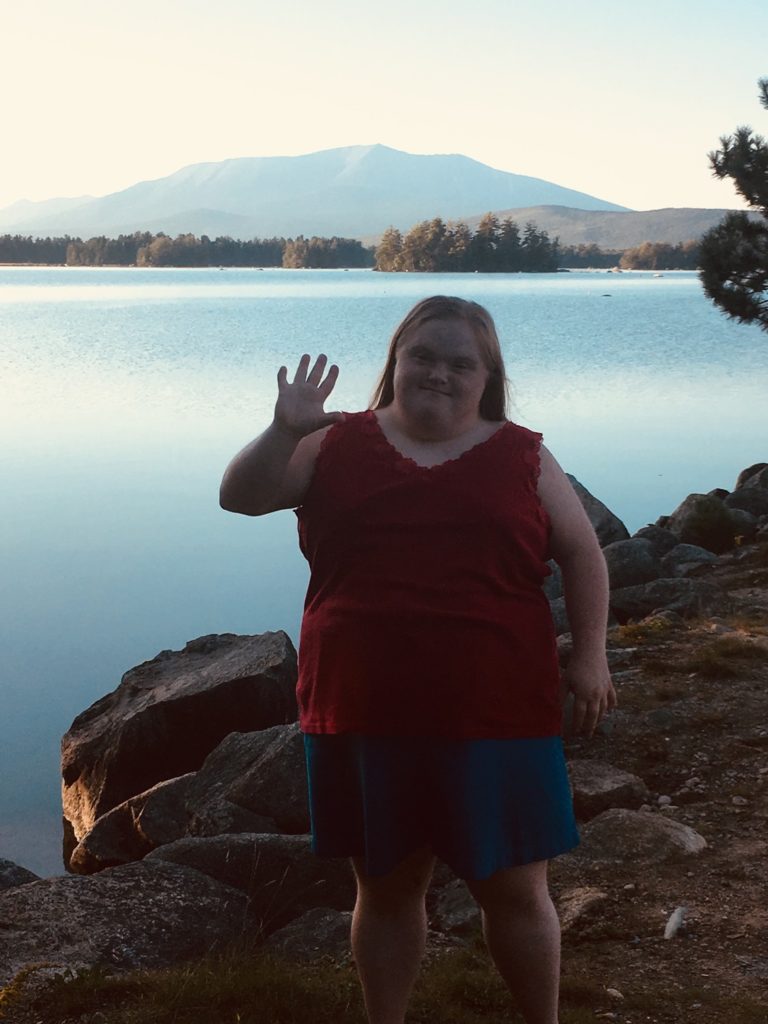
Intellectual disability is defined as someone who has a cognitive delay that develops before age eighteen and causes an IQ score of seventy or less.
My sister has an IQ score of fifty-eight. She was born this way.
To some, this may yield an apology, but Jackie does not have a condition that inherently demands an apology.
The act of apologizing reinforces negative stereotypes about disability, suggesting that there is something innately wrong, damaged, or missing when a person has a disability. Even the word dis-ability itself is a negated version of something we all value: ability. It connotes something to be avoided. Something to fear.
Down Syndrome—a type of intellectual disability caused by a genetic condition that makes an extra copy of chromosome-21—is close to being eradicated in the United States and Europe, largely due to the rise of genetic testing. Most people choose to abort when the prenatal screening tests positive for Down syndrome. In the U.S.A. the termination rate is 67%, and throughout most of Europe it is over 90%. Iceland is on track to become the first country worldwide to eliminate Down syndrome from its national population.
While I do believe that the choice of what to do with your fetus is an incredibly personal decision, I simultaneously find these high abortion rates troubling.
Certainly some people—such as single, working mothers living near or below the poverty line—view the termination of a fetus with Down syndrome not as a choice, but as a necessity for survival. These parents who feel that they have no choice but to abort due to financial and/or personal constraints certainly have my compassionate understanding. It is true that Down syndrome can often times mean higher medical costs or place other burdens on the family; however, so too, I would argue, can a child who develops Leukemia at age six or an opioid addiction at age sixteen.
Putting these exceptional cases aside, I believe that such high termination rates indicate a generalized fear and discomfort about Down syndrome in our cultures. I find this very troubling because it is quite contrary to my thirty years of joyful experiences with the Down syndrome community.
One of the biggest contributors to this problem is the mainstream media, which continues to portray Down syndrome—and really all disabilities—as an undesirable condition that is to be pitied or avoided. This leads to a devaluing of the lived experience of a person with a disability like Down syndrome.
People with Down syndrome are rarely featured in popular films and television programming. Consequently, they are rarely shown as part of life as Americans live it. When they are shown—in characters such as Becky Johnson in the TV show Glee, or the actress Jamie Brewster’s appearances in the TV show American Horror Show—they are not shown as complete characters with complex lives, but rather used for comic relief or to elicit an uneasy feeling. This has undoubtedly contributed to what I consider an alarming trend of preterm abortions of fetuses with Down syndrome, which, in my opinion, teeters too closely to eugenics to be in my comfort zone.
Likewise, perhaps it is the decline of empathy in contemporary society that is at least partly to blame for the sidelining of people with intellectual disabilities. Maybe it’s difficult for us to give people with intellectual disabilities the space they need to speak up for themselves, at their own pace, because we do not see the likeness of ourselves within them. Maybe we see something that we fear or detest in their different-ableness, in their otherness.
Identity politics has seemingly become so consumed by the proliferation of our self-image that even the most righteous allies and diversity advocates often completely forget to include “disability” in conversations about rights and social justice.
For example, the rally cries at the 2017 Women’s March on Washington, the largest single political demonstration on record in U.S. history, vocalized demands on behalf of practically everyone else except for people with disabilities. Celebrities ranging from Angela Davis to Madonna spoke up for the rights of women, immigrants, people of color, LGBTQ, incarcerated peoples, laborers, and religious minorities, yet, they still forgot to mention disability even once. Is that not a tad bit ironic?
In civil rights movements, the loudest voice wins. Thus, we often only hear the rally cries of able-bodied, typically-developing people because this is who so many highly-articulate people self-identify with. I think we can all do a better job to make more space for those with softer, or slower, or simply different voices.
A person like Jackie may have a difficult time speaking due to speech impediments, cognitive delays or low muscle development. In the process of finding their voice our society often becomes restless and impatient because the communication stream is not flowing at a pace or cadence that we deem “powerful” or “worthy” of our attention.
However, if we slow ourselves down and listen in the way that works best for an individual with a disability, then we will discover a life worth celebrating.
Maybe then we can kill the apology and start to fully accept them as our neighbors.
Recent Posts
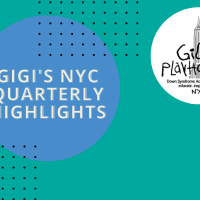
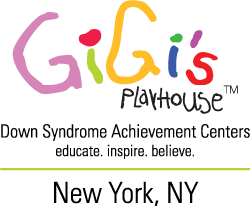
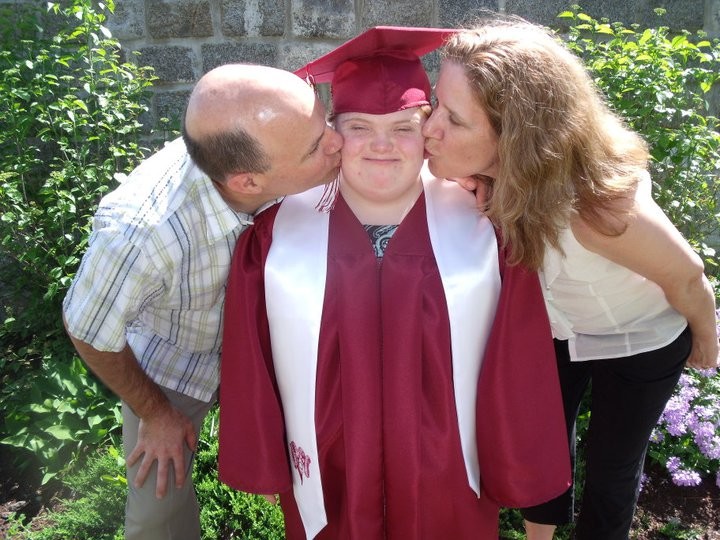
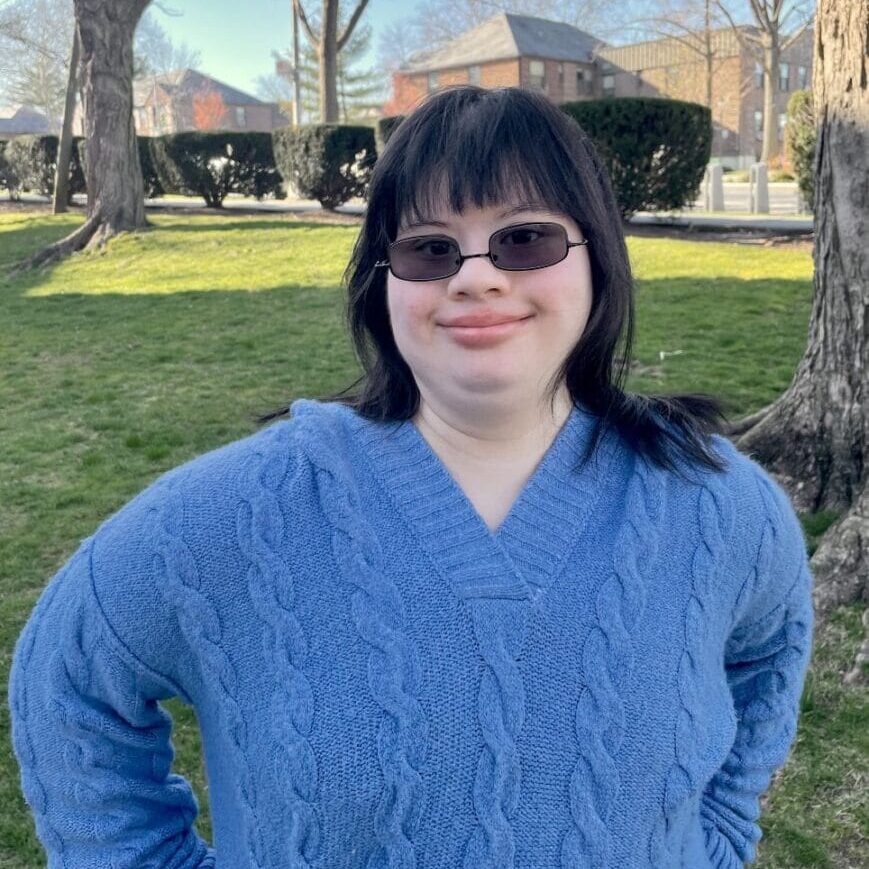
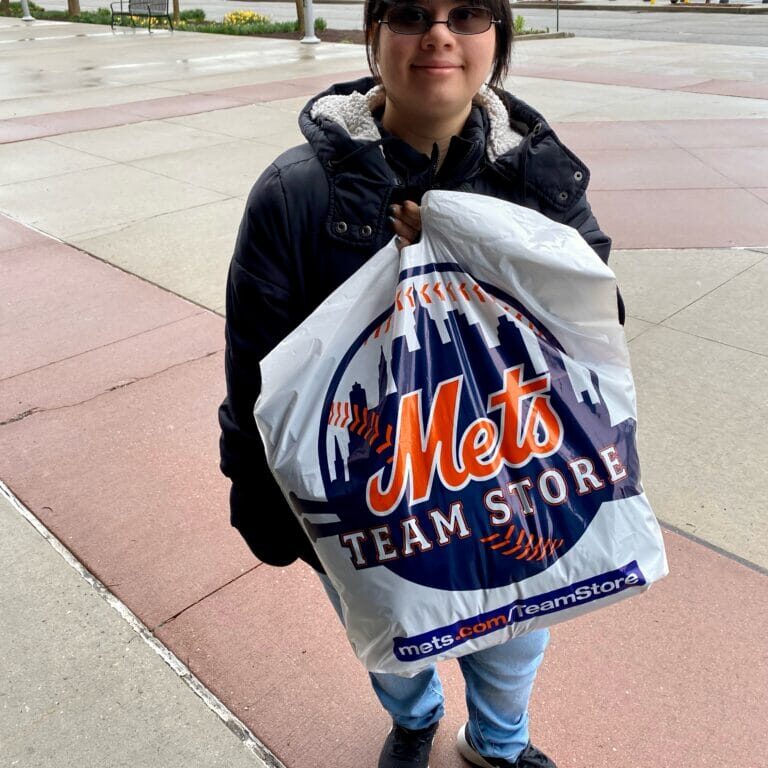
I love this! It’s very true that many people nowadays don’t have or take the time to understand people with speech or any other kind of delay. This past makes many incredible points.